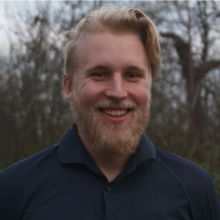Contact
Pfaffenwaldring 7
70569 Stuttgart
Deutschland
Room: 2.331
Office Hours
per request
Subject
The ultimate the goal of my research is to develop an efficient and accurate algorithm to predict material behaviour or failure probability of microstructured materials. Thereby, the algorithm is not confined on a subclass of possible materials and will only rely on image data. This task is realizable using various unsupervised and supervised machine learning techniques. It is the aim that researchers and scientists across the world can use the results of my work to greatly benefit their work-flows.
It is also aspired to openly share the produced code for other researchers to use, e.g. an efficient microstructure generation algorithm, and hence it my personal interest to produce clean, reusable and efficient code.
The project PN3-1 is embedded into the Cluster of Excellence Data-integrated Simulation Science and is funded by the German Research Foundation (Deutsche Forschungsgemeinschaft, DFG) under Germany's Excellence Strategy -- EXC-2075 -- project number 390740016.
- Lißner, J., & Fritzen, F. (2019). Data-Driven Microstructure Property Relations. CoRR, abs/1903.10841, 57. https://doi.org/10.3390/mca24020057
- Lißner, J., & Fritzen, F. (2023). Hybrid machine-learned homogenization: Bayesian data mining and convolutional neural networks. arXiv. https://doi.org/10.48550/ARXIV.2302.12545
Winter term
Data processing for engineers and scientists, Computer Lab (see C@MPUS, module 100040) - since 2019
0000-0002-2286-5211 (open in new tab)


